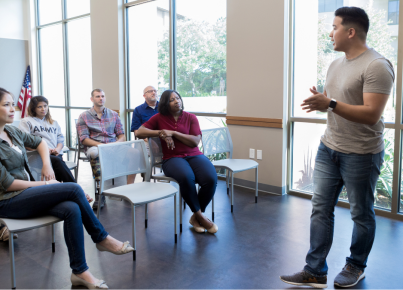At present, mental health is still one of the more urgent problems that Vietnam War veterans face. People are starting to realize the immense impact that military service might have on one ‘s mind. Realistically, however, despite increased knowledge about and attempts at curing mental health issues, it continues to exist in the form of mental health Stigma in the Veteran. This is a mental problem that stops so many people from seeking help and, to open up veterans’ lives, that silence must be broken down first.
Identifying stigma
Mental Health Stigma in the Veteran can be defined as negative, usually false beliefs that a society or people hold about some issue; in this case about mental health. In the world of veterans, such things render all sorts of different shapes, from an ashamed feeling inside oneself for needing mental health help to social stereotypes about mental failure and misbehavior debasing all mentally disturbed individuals. This stigma is particularly harsh on people of war, who by training consider themselves to be tough and resilient.
The Realities That Veterans Face In Struggling With Mental Health Issues
As they join civilian life after the military, veterans are beset by many problems. Such matters as post-traumatic stress disorder (PTSD), depression, anxiety, and substance abuse can strike at any time for those with a history of problems. Service puts both physical and emotional stress on their bodies. These are the various reasons why veterans’ well-being is never a simple matter to attain.
Breaking the Stigma: Encouraging Open Dialogue
Open dialogue about mental health is necessary if veterans are to be helped. Several approaches can assist in this regard. For example, it should be possible to create situations in which those who served together feel supported. One of the most effective ways to overcome the stigma surrounding major depressive disorder is, especially for veterans who have made it through their problems, opening up about their experiences and sharing their troubles. They stand as an example to their contemporaries, proving that there is nothing wrong with seeking help when you need a hand getting by (as opposed to alone).
Building a Supportive Environment within the Community
Given the escalating number of veterans who struggle with mental health problems, community-based support appears to be required. Measures like peer-to-peer programs (in which veterans can encounter others who have gone through similar experiences) are crucial. Many older people who have come to the program, have found companions who also carry teens during the festive season and share the program with them as well. Right now even forming such a relationship is contextually impossible — so now it must be over quickly.
Educational Propaganda Programs in the Fields of Mental Health
In addition, community-based programs that promote mental health through social services are a better gauge of what veterans need. These programs create a sound basement for many veterans to express themselves in long-term courses so that they can detect their problems in a natural flow.
Education in the Veteran Community as a Way of Combating Prejudices
Education is one of the most potent forces for eliminating stigma towards mental illness in American military service veterans. This means educating veterans and those who deal with them- family members, doctors, clinical staff, and other caregivers. In this way, people will be better able to understand, sympathize with- and treat if needed- the unique problems faced by veterans.
Participation of the veteran leaders will have a great impact on stigma reduction. By openly talking about mental health, leaders not only lead but set the stage for others to follow. Accounting for veteran leaders in leadership can result in policies and procedures that proactively support veterans’ mental health.
The Untold Story: The Power of Advocacy
To eliminate mental health stigma among veterans, advocacy is an essential element. Advocates at the local and national levels can make changes in policy so that mental health care for veterans becomes a priority. They may also work with other organizations dedicated to the well-being of veterans, to conduct campaigns and establish partnerships for spreading awareness.
The importance of perseverance in cultural change 2009 Nov Cultural change is not a one night thing; it takes time and the struggle to eliminate stigma around veterans’ mental health requires perseverance. This means not only fighting against commonly held interpretations but continuously promoting an attitude of acceptance and encouragement for those with mental health issues.







You must be logged in to post a comment.